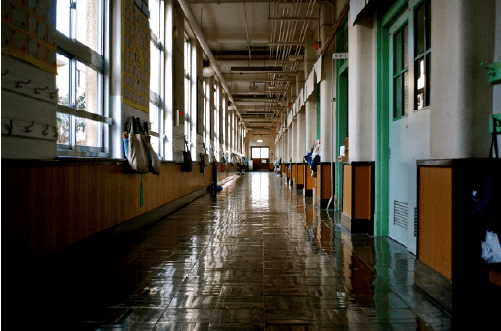
Schools
GridDuck measures and automates hundreds of appliances in businesses, including in schools. Contact us to learn more.
Tracking your electricity costs
Do you know how much you are spending on energy? Do you know what you are spending it on, and when?
GridDuck can track your electricity consumption in real time, for your whole building, or for individual appliances. We can also take in external data feeds to our dashboard, for example from your gas or water measurements.
For this primary school in London, there is no difference in electricity spend between weekend and weekday, or day and night.
If the school is occupied for 8 hours per day (e.g. 8am to 4pm), then up to 2/3 of its electricity spend is wasted (4pm to 8am is 16 hours). Factoring in weekends and holidays, the school is potentially wasting 70% to 80%.
Our system allows you to track your energy spend for a whole school (as in the chart above), or for individual appliances. You can download your data and compare it to your energy bill and school timetable.
Savings opportunities in Schools
Energy costs are often the second highest expenditure in schools (behind the annual wage bill). Approximately half the energy bill is from heating (usually gas), and 20% from lighting (electric).
Save costs automatically, every day
How do you manage your lights? Do you leave all of them switched on when your school is shut?
Are you heating or cooling your classrooms only during school hours?
You can set simple and flexible time switch rules for lights, heaters, water heaters, air conditioning systems and other appliances, using our simple interface. This rule is for a room heater.
The rule then dictates a behavior that clearly saves a lot of energy. In the example (GridDuck office) the heater is on 5am to 6pm.
Balancing renewable energy
Schools are great places for renewable energy generation. But the sun shines when it shines.
One way to maximise self-consumption is to track your solar production and automatically switch on appliances when the sun is up. For example, you can heat up a hot water tank.
We helped this primary school in East London track its solar production and compare it against its electricity consumption.
Solar power at a school over seven days
See it working in real time.
Have a look at a real example, our own office, to see how our dashboard works and how it can benefit you.
See electricity demand and consumption in real time, understand how you can generate automation rules, create groups and set permissions.





